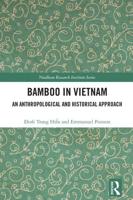Publisher's Synopsis
In addition to being a fundamental concept for planning the water infrastructure which supports extensive agricultural economies across Southeast Asia, knowledge of the Mekong River's hydrological catchments has calibrated the control of land, resources and people. Liquid Territories shows how and why the areal dimensions of the Mekong's basin, delta and floodplain have become a critical geographic reference for human activities.
This book concentrates on the way knowledge of the river's catchments has been recorded on, and extracted from, maps. Repeatedly drawn by geographers, engineers and cartographers since before the start of European colonization, the book describes how cartographic projections of the basin, delta and floodplain have affected geopolitical strategy, the exercise of military power and anthropogenic modifications of the terrain. Drawing on the discourses of hydrology, geography and cartography, as well as military science, colonial politics and regional planning, the book explains why the spatial articulation of surface water flows is reflected in the configuration of national boundaries, soils and settlements today. Focusing on geographic concepts, the book provides insights into the process of urbanization in Southeast Asia, the region's colonial and post-colonial history, the Mekong River's political ecology, the scales of contemporary water management and the design of territory.
This book will be relevant to academics who are interested specifically in the Mekong River and Lower Mekong Basin as well as in integrated water management planning. It would be especially relevant to architects, urbanists and landscape architects.










